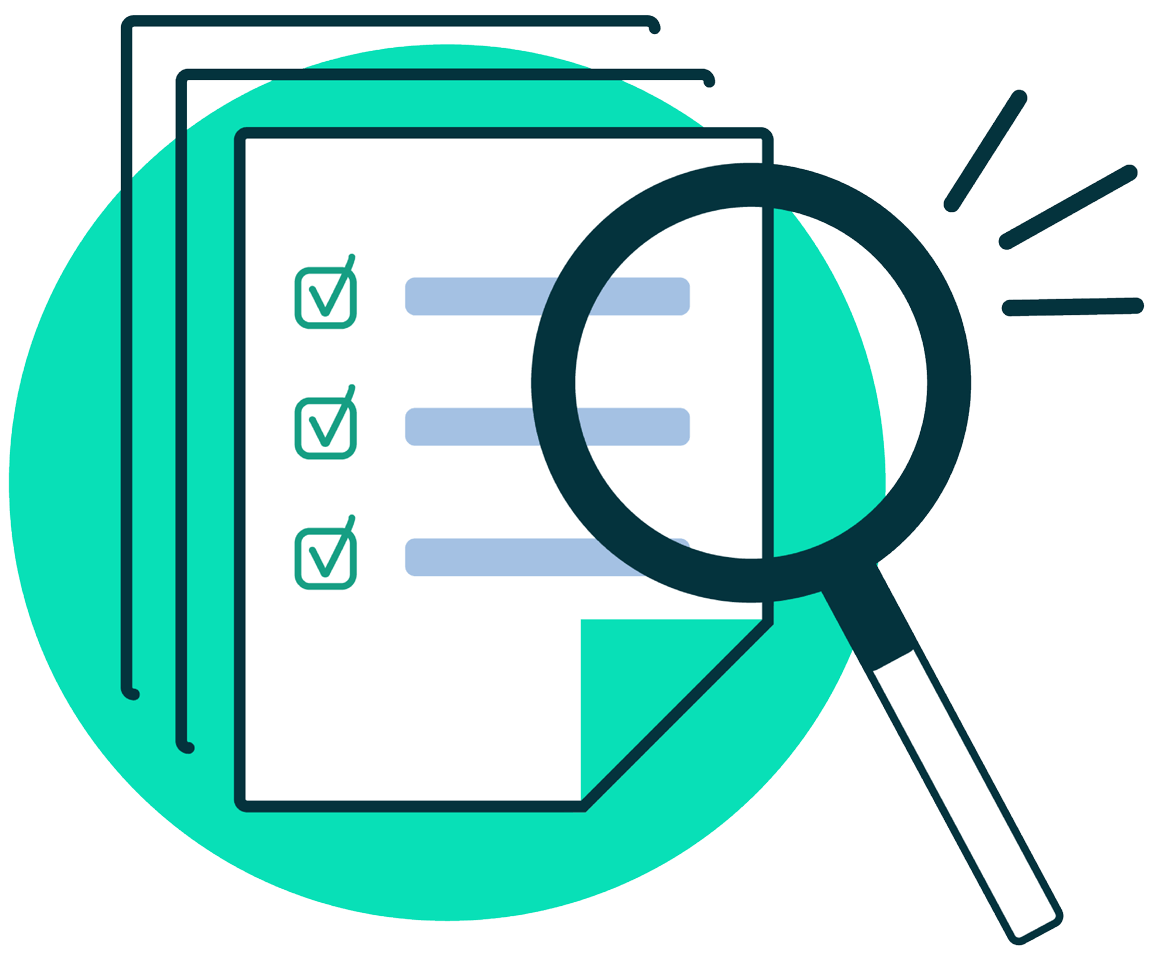Paper Trails > The Complete Guide to Payroll Compliance
The Complete Guide to Payroll Compliance
Eliminate the headaches of payroll compliance
As soon as you hire your first employee, you begin your obligation of running payroll. Once your business takes on this responsibility, you open your business up to a number of potential compliance issues. Whether tax laws or employee privacy regulations, it is critical for your business to understand the areas of the payroll process in which you must maintain compliance. Working with a trusted payroll provider can help relieve your administrative burden and keep your business compliant.
Download our Complete Payroll Compliance Manual!

What is payroll compliance?
Payroll compliance means following all federal, state, and local rules and regulations that govern how a business pays its’ employees. From how businesses gather employee data, to how taxes are withheld for employees, the Internal Revenue Service and Department of Labor have established laws that businesses must adhere to. Failure to follow these laws can result in costly fines and penalties for businesses.
Areas to maintain compliance
It is important to understand the rules and regulations surrounding the following topics.

Tax compliance
Payroll taxes are a requirement of every business. These taxes are governed by the Internal Revenue Service. Businesses are responsible for withholding certain taxes from employee’s pay as well as paying certain taxes themselves.

Tax responsibilities include
State & Federal Income Tax Withholdings
Employers are responsible for withholding both state and federal income taxes from employee paychecks. The amount to withhold is determined by the selections made on employee W4 forms.
FICA Taxes
FICA is a tax that is split 50/50 among the employer and the employee. Employers are responsible for withholding the employee FICA portion from employee wages and then match that amount.
SUTA & FUTA
Businesses must also pay their share of taxes on each employee in the form of State Unemployment Taxes (SUTA) and Federal Unemployment Taxes (FUTA). There are different rates for each employer. Check out this article for more information.
Employee Data Compliance
When it comes to your employees, the U.S Labor Department requires certain employee information to be recorded and kept on file. It is the responsibility of your HR department to create processes around how to gather. record, and securely store all of this data. Maintaining confidentiality of employee’s personal information is critical. Be sure to only grant access to those parties that need it and follow electronic security measures to protect employee data.
Employee Data that You Must Maintain
- Employee’s full name
- Social security number
- Full address
- Birthdate
- Occupation
- Hours worked each day and total hours worked each workweek
- Regular pay rate
- Total straight-time earnings
- Total overtime earnings
- All additions and deductions of the employee’s wages
- Total wages paid each pay period and date of payment

Employee Classifications
To stay compliant on tax related issues, you must know how to classify your employees correctly. Misclassifying employees can result in incorrect tax withholdings and potential fines for your business. Ensure compliance by correctly classifying your employees in the following areas.
Classifying your employees as exempt or non-exempt correctly is important. Incorrect classification can result in fines for your business and increase your payroll costs. Exempt employees are paid a salary and are not eligible for overtime. These types of employees must meet certain job duties to be considered exempt. Non-exempt employees are paid an hourly rate of at least the state or federal minimum wage and must be paid overtime.
There are many differences between W2 and 1099 employees. The government places the burden of classifying and tracking taxes for these employees squarely on businesses. The main difference is that W2 employees are employees of the company and must have taxes withheld from their pay while 1099 employees are not employees of the company, are self-employed and pay taxes on their own.
Overtime & Minimum Wage
The Fair Labor Standards Act (FLSA) requires that businesses follow specific overtime and minimum wage laws. Knowing the rules surrounding these requirements is critical for your business to maintain compliance. Having your employees correctly classified as either exempt or non-exempt will have a huge impact on whether or not your will need to follow the overtime rules.
Overtime
For non-exempt employees, overtime must be paid out at a minimum of 1.5 times an employee’s normal rate of pay for any hours worked over 40 hours in any given 7 day period. Non compliance will result in penalties and fines for your business. You can incorporate these certain strategies to help reduce overtime in your business.
Minimum Wage
State and federal minimum wage laws must also be followed to maintain compliance in your business. Currently, your non-exempt employees must be paid at least the federal minimum wage of $7.25 per hour. Your exempt employees must earn at least $684 per week. These minimums must be meet unless your state has higher thresholds, in which case you must follow your state’s minimums.
Additionally, information regarding the Maine minimum wage can be found here.
Withholdings, Garnishments & Deductions
Numerous deductions, withholdings, and other types of wage garnishments are taken from employee paychecks. It is important to accurately deduct and report these items for compliance purposes.
For tax purposes, certain payroll deductions are considered pre-tax deductions while others are considered post-tax deductions. Read more about the different categories of deductions here.
Examples of withholdings, deductions, and garnishments from employee’s wages include:
- Income tax
- FICA, FUTA, and SUTA taxes
- Retirement contributions
- Heath insurance premiums
- Life insurance premiums
- Child support payments
- Repayment of certain debts
- Job related expenses

When filing these types of items, follow the IRS guidelines and forms. You will also want to check the legislation of the state in which you do business as your state may have additional guidelines.
Fringe Benefits Reporting Compliance
Almost all companies offer their employees benefits. Any perks or benefits offered to an employee aside from financial compensation are considered fringe benefits. Additionally, there are special tax considerations on employee benefits, which can be found here.
Fringe Benefit Examples
Health Insurance
Family Medical Leave
Bonuses
Travel & Mileage Reimbursement
Commuter Benefits
Meal Compensation
Many fringe benefits offered to employees are required to be taxed by the IRS. Businesses are responsible for withholding necessary taxes on these fringe benefits and reporting them on the respective employee’s W2. Tracking these fringe benefits and withholding and filing taxes are key to keeping your business compliant.

Tax Filing Compliance
From payroll taxes, to quarterly estimated taxes, and self-employment taxes, there are multiple taxes businesses need to file and corresponding deadlines to meet. Working with a trusted payroll provider will help you track and file taxes properly.
5 General Business Taxes
- Income taxes
- Estimated taxes
- Self-employment taxes
- Employment taxes
- Excise tax
Tax Deadlines
- Estimated quarterly taxes are due as follows: Q1 – April 15th, Q2 – June 15th, Q3 – September 15th, Q4 – January 15th of the next year.
- Self employment taxes are due when personal income taxes are due, generally around April 15th.
- Employment taxes are paid on varying schedules based on IRS and state guidelines. Most taxes are due weekly, but could also be due monthly or quarterly depending on your deposit schedule.
- Excise tax: Depending on industry are due monthly, quarterly, or annually.
Affordable Care Act Compliance
Applicable Large Employers (ALEs) with over 50 or more full time equivalent (FTE) employees, are subject to the Affordable Care Act. Businesses must gather and file necessary information to the IRS and send copies of forms to employees by certain deadlines.
Information to Provide
Information that must be collected through the proper forms includes:
Information that must be collected through the proper forms includes:
- Employer Identification Numbers (EIN)
- Tax Identification Numbers (TIN)
- Employee Dependents
- Employee Addresses
- Months of Coverage
Steps to Stay Compliant
- Businesses must offer essential health insurance coverage to at least 95% of their employees and their dependents.
- Insurance must be offered within 90 days of hire to all eligible employees.
- Plan options must cover at least 60% of health benefits.
- Forms 1094-C and 1095-C must be filed by February 28th if filing on paper or March 31st if filing electronically.
- Copies of 1095-C forms must be delivered to employees by January 31st.
Let us assist your business with your payroll compliance needs.

Testimonials

The tools that Paper Trails provides to me and my employees improve our HR processes and keeps my team engaged in providing world-class service to our guests.
German Lucarelli, The Lost Fire

We began with Paper Trails at the beginning of 2020 and have never once regretted the decision. Jeff, Chris, and Teresa have all made the process amazingly seamless which has let us focus on so many other important things to continue to grow our business. Paper Trails has saved me countless hours and headaches over the last 2 years. Congdon’s Doughnuts is better equipped for future growth thanks to Paper Trails.